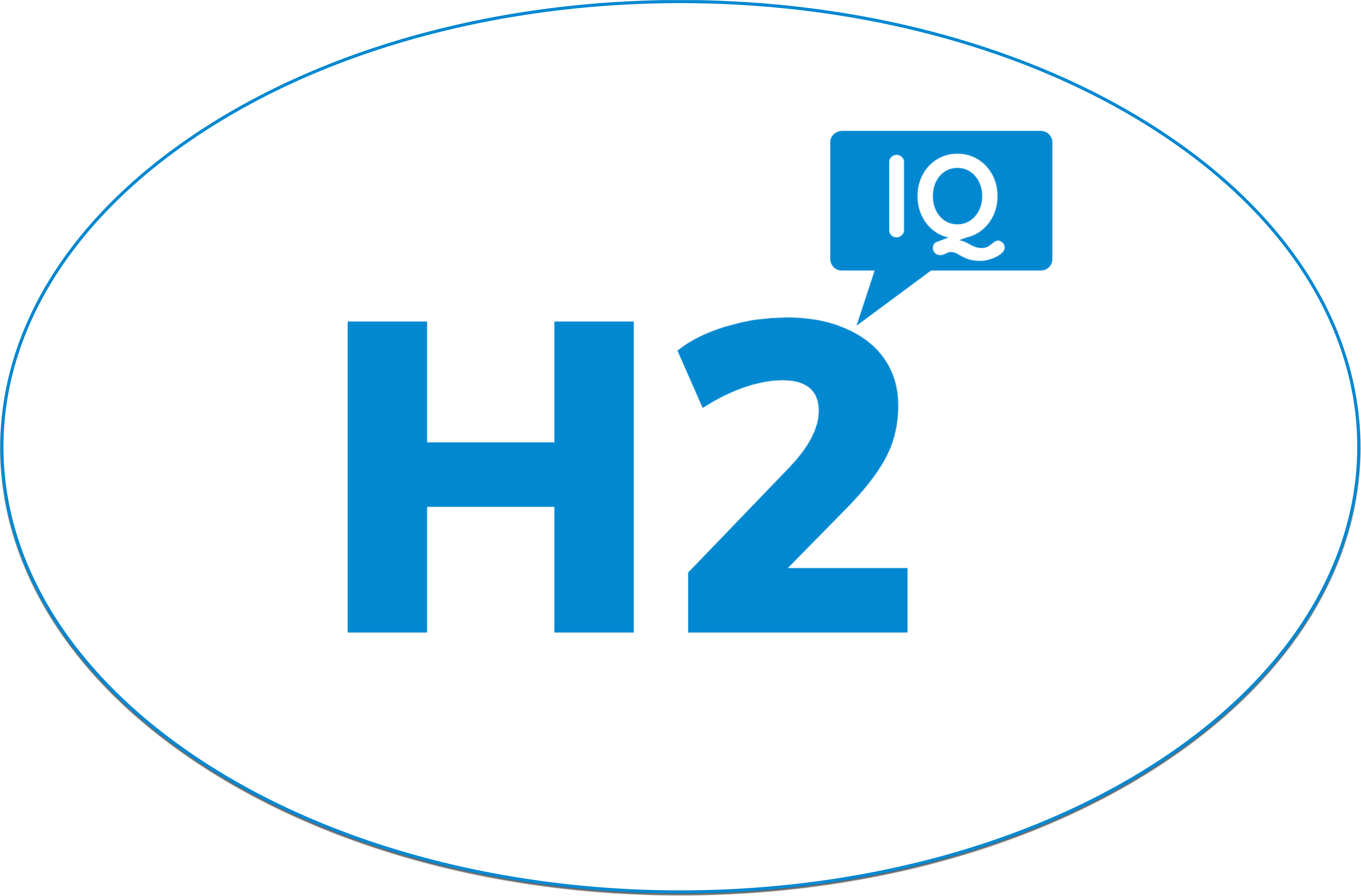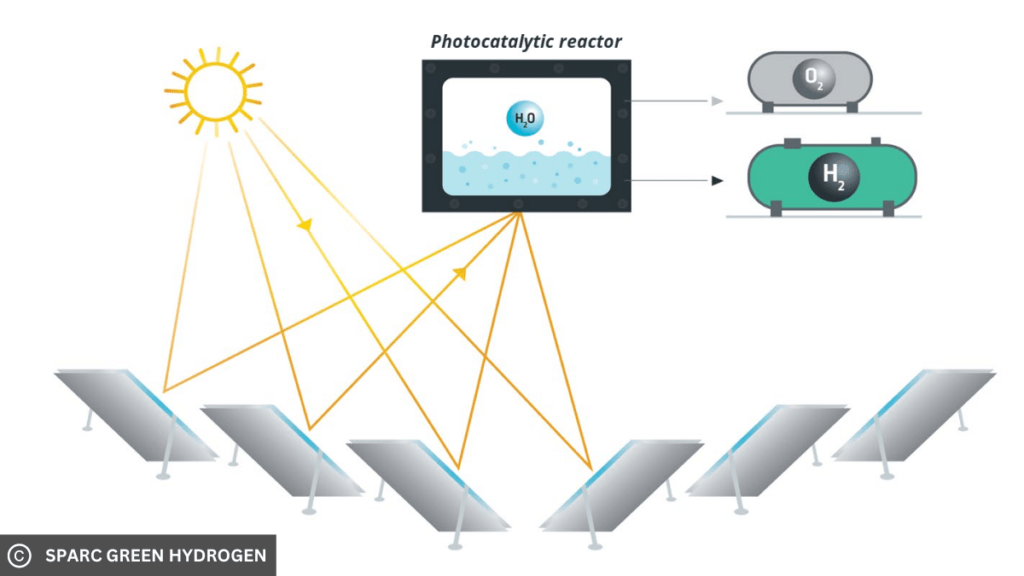
- Agreement reached to undertake on-sun testing of Sparc Hydrogen’s photocatalytic water splitting reactor at the CSIRO Energy Centre in Newcastle, NSW
- World-leading demonstration of photocatalytic water splitting under concentrated sunlight
- Prototype testing will provide valuable information for ongoing R&D and pilot plant design
- Sparc Hydrogen recently received $418,655 AUD R&D tax rebate
Sparc Technologies Limited (ASX: SPN) (Sparc, Sparc Technologies or the Company) is pleased to advise that Sparc Hydrogen, which is a JV between the University of Adelaide, Fortescue Future Industries (FFI) and Sparc Technologies, has executed a Kick-Start agreement with the CSIRO to undertake on-sun testing of Sparc Hydrogen’s photocatalytic water splitting (PWS) reactor at the CSIRO Energy Centre in Newcastle, New South Wales. The prototype testing is due to be conducted in Q3 2023, which is in line with Sparc’s announcement to the ASX on 3 March 2023. The key aims of this work are to advance the technology readiness level (TRL) of Sparc Hydrogen’s PWS reactor and provide valuable data and information for the subsequent piloting phase.
Sparc Technologies Executive Chairman, Mr. Stephen Hunt, commented:
“Sparc is delighted to be working with our Sparc Hydrogen partners, The University of Adelaide, FFI and
Flinders University, to undertake this testing with the CSIRO, in what we believe to be a world leading
demonstration of photocatalytic water splitting in a concentrated solar field.Completion of this test work will be a significant milestone, not only for Sparc Hydrogen, but more widely for the advancement of photocatalytic water splitting, a next generation green hydrogen production technology which does not require capital intensive electrolysers nor solar or wind farms.”
Prototype testing of Sparc Hydrogen’s reactor in real world conditions is the culmination of >5 years of research and development work conducted by the University of Adelaide and Flinders University. Laboratory proof of concept has been successfully established whereby several lab-scale reactor prototypes have been developed and tested under simulated solar concentration. This testing has shown a hydrogen production and efficiency benefit from exposing certain photocatalyst materials to concentrated light and heat. A high-power solar simulator has recently been acquired from the United States to continue to advance the laboratory work in parallel with prototyping and pilot plant development.
The CSIRO Energy Centre in Newcastle was identified as being an ideal facility to conduct the first on-sun testing of Sparc Hydrogen’s PWS reactor. The facility is home to Australia’s largest solar thermal research hub. The hub comprises a 30-meter-high (98.43 feet) solar tower surrounded by a 4,000-square-meter (43,056-square-feet) field of 451 locally manufactured custom-designed mirrors (heliostats), and is capable of generating temperatures of up to 1,500 degrees Celsius (2732 degrees Fahrenheit). The hub provides a platform that allows Australian researchers to develop, test and commercialize technologies that incorporate concentrated solar.
Sparc Hydrogen has received funding of $28,688 AUD through the CSIRO Kick-Start Program to contribute towards the costs of the prototype testing. Kick-Start is an initiative designed to support innovative Australian start-ups and small businesses in accessing CSIRO’s research expertise and capabilities to foster growth and development. Sparc Hydrogen is grateful for the opportunity to work with the CSIRO on this world-leading demonstration of PWS.
Design of the prototype reactor module is complete and construction, including for the balance of plant, has commenced. Sparc Hydrogen is aiming to commence set-up of the prototype at the CSIRO in late July 2023 with results to be gathered over a period of ~4 weeks. A second round of testing later in the year will be considered pending results.
The key aims of the prototype testing include:
- Advancing the TRL of Sparc Hydrogen’s PWS reactor from 4 to 5 (1), which is one level closer to a commercially
deployable product. - Providing valuable data and information for pilot plant reactor design.
- To enable benchmarking of laboratory testing under simulated solar conditions with real-world results.
- Further establishing Sparc Hydrogen as a world-leading proponent of PWS technology and particularly as
having a viable reactor to test new and better photocatalysts under development by leading research
groups around the world.
R&D Tax Refund
Sparc Hydrogen has recently received a research and development (R&D) tax refund totaling $418,655 AUD as part of the Australian Government’s R&D tax incentive relating to the 2022 financial year.
The R&D Tax Incentive scheme is a program jointly administered by the Australian Taxation Office and AusIndustry, under which companies can receive up to a 48.5% refundable tax offset of eligible expenses on research and development activities.
About Sparc Hydrogen
Sparc Hydrogen is a joint venture (Sparc Technologies 52%, The University of Adelaide 28% and Fortescue Future Industries (FFI) 20%) developing next-generation green hydrogen technology using a process known as photocatalytic water splitting (PWS). This process is an alternative to producing green hydrogen via electrolysis, using only sunlight, water, and a photocatalyst. Sparc Hydrogen’s patent-pending solar reactor is demonstrated to improve the efficiency of PWS to separate hydrogen from water using concentrated solar. Given lower infrastructure requirements and energy use, the ‘Sparc Green Hydrogen’ process has the potential to deliver a cost and flexibility advantage over electrolysis.
About Sparc Technologies
Sparc Technologies Limited (‘Sparc’, ASX: SPN) is an Australian company pioneering new technologies to disrupt and transform industry while seeking to deliver a more sustainable world. Sparc has established offices in Australia, Europe and North America and is focused on three core areas of technology development.
- Sparc has spent over 4 years developing a graphene-based additive product, ecosparc®, which has demonstrated up to 40% anti-corrosion improvement in commercially available epoxy coatings. Sparc recently commissioned a manufacturing facility to produce ecosparc® and is engaging with global paint companies and end users to advance commercial-scale trials.
- Sparc is a majority shareholder of Sparc Hydrogen, which is a company pioneering the development of photocatalytic water splitting (‘PWS’) green hydrogen production technology. PWS is an alternative to producing green hydrogen via electrolysis, using only sunlight, water and a photocatalyst. Given lower infrastructure requirements and energy use, the process has the potential to deliver a cost and flexibility advantage over electrolysis.
- Sparc is also developing sodium-ion battery technology in partnership with Queensland University of Technology.
For more information, please visit: sparctechnologies.com.au
(1) ARENA, Technology Readiness Levels for Renewable Energy Sectors, Commonwealth of Australia (Australian Renewable Energy Agency) 2014
IMAGE (above). Figure demonstrating Sparc Green Hydrogen’s photocatalytic water splitting under concentrated sunlight, as per Figure 2. in the ASX news release on July 3, 2023. Credit: Sparc Green Hydrogen.





